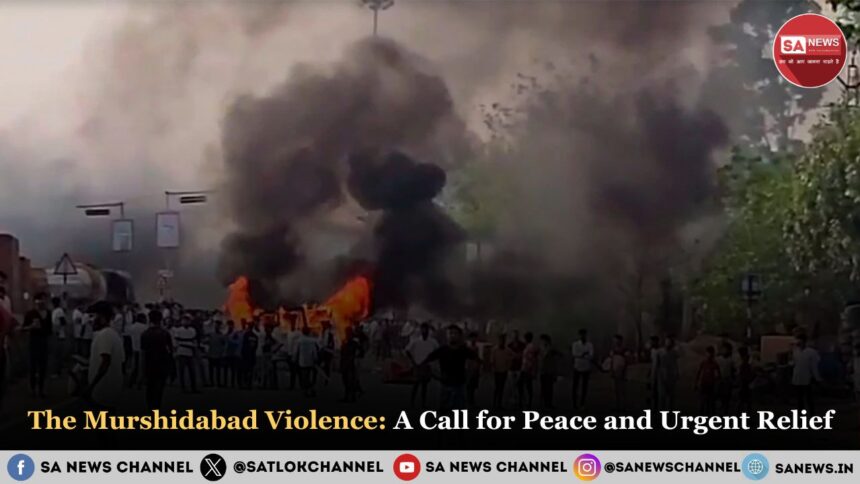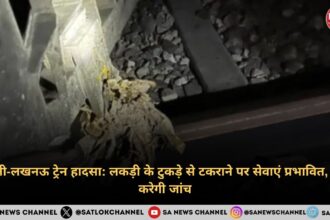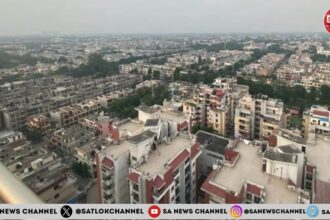The recent escalation of violence in Murshidabad, West Bengal, has brought turmoil to several communities, causing a mass displacement of residents in search of safety. Hundreds of families, including women and children, have been forced to flee their homes across the Ganga River. This heartbreaking situation highlights the severity of the conflict in areas such as Dhulian, Suti, and Shamsherganj, where communal clashes have left residents devastated and desperate for relief.
Root Cause: Disputes and Destruction
The unrest stems from disputes over the Waqf (Amendment) Act, which has ignited tensions among local communities. Visuals from the affected areas reveal scenes of destruction, with homes, shops, and other properties burned or damaged. Amid the chaos, residents have opted for the perilous journey across the Ganga River, taking refuge in neighboring districts. The exodus reflects the magnitude of fear and uncertainty gripping the region.
Shelter and Relief Efforts
Malda district has become a haven for many displaced individuals, who are now housed in temporary shelters such as schools. Local authorities have stepped in to provide food, accommodations, and basic necessities for the affected families. However, the influx of displaced persons has created mounting challenges for the region’s infrastructure and resources. The situation demands immediate attention and intervention to ensure the safety and well-being of those impacted.
Calls for Peace and Security
The violence has also intensified calls for peace and resolution. Community leaders and officials are urging for increased security measures, including intervention from central forces. The unrest has raised concerns about the broader implications for communal harmony and governance in the region. The need for dialogue, reconciliation, and long-term solutions has become more urgent than ever.
A Region of Heritage Under Threat
Murshidabad has long been a region rich in culture and heritage, but the current unrest underscores the vulnerability of communities to political and social tensions. The tragic displacement of residents emphasizes the importance of proactive measures to address grievances, prevent violence, and maintain social cohesion. This crisis serves as a poignant reminder of the importance of working toward unity and mutual understanding to avoid such devastation.
Spiritual Perspective by Sant Rampal Ji Maharaj: Knowledge Is the Key to Unity and Salvation
The tragic displacement in Murshidabad reminds us of the deep need for peace and understanding among communities. Sant Rampal Ji Maharaj teaches that true knowledge is the only way to bring lasting peace—not just externally but within the soul. According to His spiritual guidance, human life is not meant for hatred, division, or violence, but to achieve salvation through the true worship of the Supreme God, described in our holy scriptures.
Sant Rampal Ji Maharaj emphasizes that division among people stems from ignorance of divine truth. When people understand that all souls are part of the same Supreme Power, conflicts lose meaning. Instead of fighting over religion, caste, or region, we must unite on the spiritual path. By following the eternal knowledge from scriptures, humanity can overcome fear and hatred, and work toward a world rooted in compassion, unity, and moksha (salvation).
A Call for Compassion and Support
The plight of the displaced individuals also calls for compassion and support from society. Humanitarian organizations and concerned citizens have a crucial role to play in providing aid and advocating for the rights of those affected. Ensuring safe and dignified conditions for the displaced should remain a priority.
Conclusion
In conclusion, the Murshidabad violence and the resulting displacement across the Ganga River represent a dire situation requiring urgent attention from authorities and civil society alike. Restoring peace and ensuring the safety of affected residents is paramount. This crisis serves as an opportunity to reflect on the importance of preserving communal harmony and addressing underlying issues to prevent future unrest.









